MaCherie is a retired Air Force combat veteran who has committed most of her time post-service as an advocate for veterans and military families. She holds a bachelor's degree in Communication and has become an award-winning advocate for her work, especially at the intersection of Black and queer.
MaCherie is now an independent consultant and sits on the board of two veteran nonprofit organizations. One is focused on reducing housing insecurities and eliminating legal red tape to support upward mobility. The other is focused on illuminating disparities in benefit allocation and reparative justice.
Being Black in the military is hard. Hell, being Black on its own is hard. So is being queer. Now put them together and add service to a branch of the United States military, an institution meant to uphold and defend the Constitution. A document that, at its inception, determined Black people to be 3/5 of a human. No, we haven’t forgotten.
Not through The Reconstruction Era or the Civil Rights Era.
Not through 2022, when we finally saw a federal anti-lynching law get on the books.
We haven’t forgotten because we can’t. There are too many places in the country, and within the military, that don’t like our kind, be it Black or queer or both. From what you’ve now read from some of the other interviews, the racism and discrimination often aren’t being hidden. We went from progression to microaggression to regression, and the once-quieted voices are getting very loud again.
The stories within these pages reveal how putting on a military uniform doesn’t protect you from racism, discrimination, or harassment of any kind, especially when people in positions of power uphold the antiquated ideologies of which our country was founded.
There is a duality that must be acknowledged in benefiting from the privilege of lighter skin while simultaneously living and experiencing the world as a Black woman who is also queer. I know I’ve slipped through the barely open door because I “check the box.” But I also do my best to blow it wide open for others. You have to lift while you climb.
Philosophy for Survival
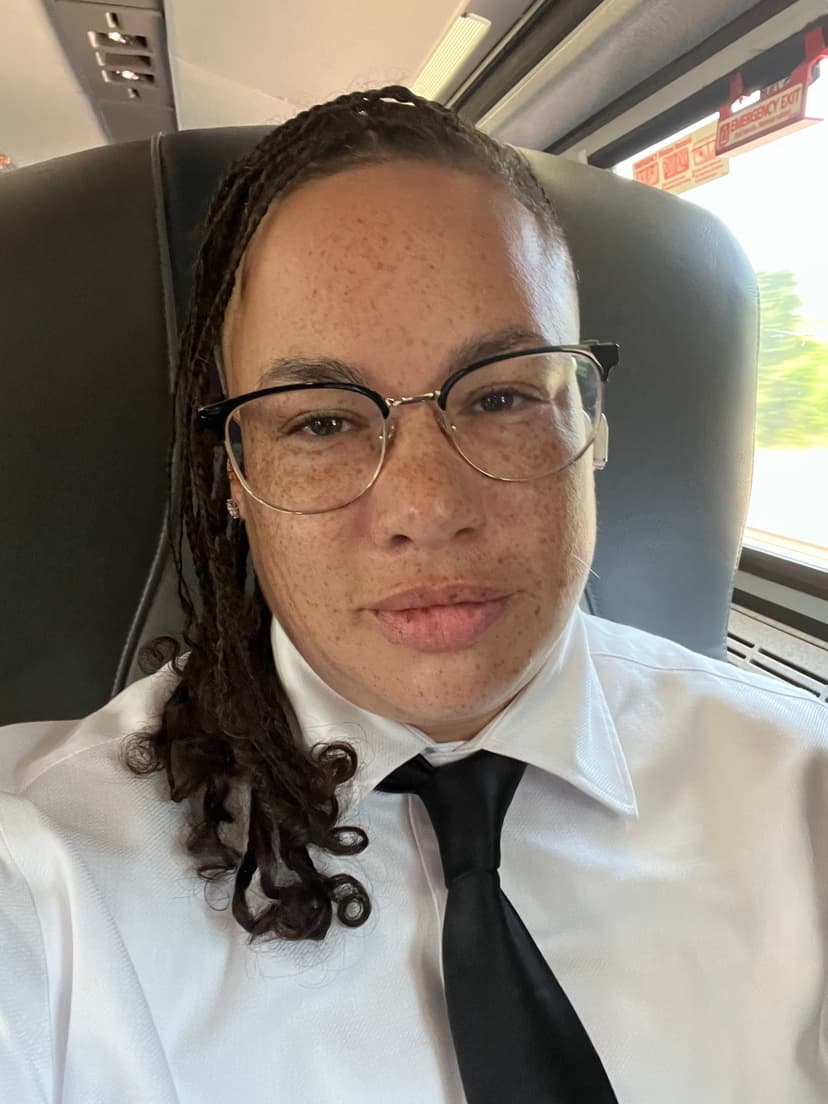
Photo Courtesy of MaCherie Dunbar
Sometimes, the racism was explicit, and of course, there were more microaggressions than I could count. I was always taught that, because of my Blackness, I had to be twice as good because I’d be judged twice as hard. Sadly, this has proven true time and again. In the military, this philosophy became, “You can’t put me down if you can’t keep up.” Being better or smarter or faster felt safer, to a degree.
During my second deployment, there was a captain who hated me. We were the same age. She absolutely seemed queer. All that separated us was race and rank. It was clear she wanted to prove she was top dog, but if you have me on rank, what’s the problem, ma’am? So, I took every opportunity I was given to give her the smoke she kept asking for. My hands were a bit tied because she was an officer, but I embarrassed her every chance I got in every physical fitness activity. She hated to see me at the pull-up bar
Everyone knew losing to me pissed her off, so they egged it on, of course. I can laugh about that part, but she took it up a notch and threw me under the bus (to base command) to cover her own behind after a mortar attack in Iraq. It’s all fun and games until they start trying to find ways to take you down for real.
Shout out to my supervisor, who was a Master Sergeant at the time, who also happened to be a former Marine. A muscular Latino, shaped like a bodybuilder, and old enough to be my father. You did not want to see him bee-lining for you. But, he paused and listened to my side of the story. Whatever action he was going to take, he didn’t. He just said, “OK. I’ll take care of this.” Then he turned back around and went back the way he came. I won’t say what happened next, but I’m glad he had my back.
Don’t Ask, Don’t Tell Becomes Personal
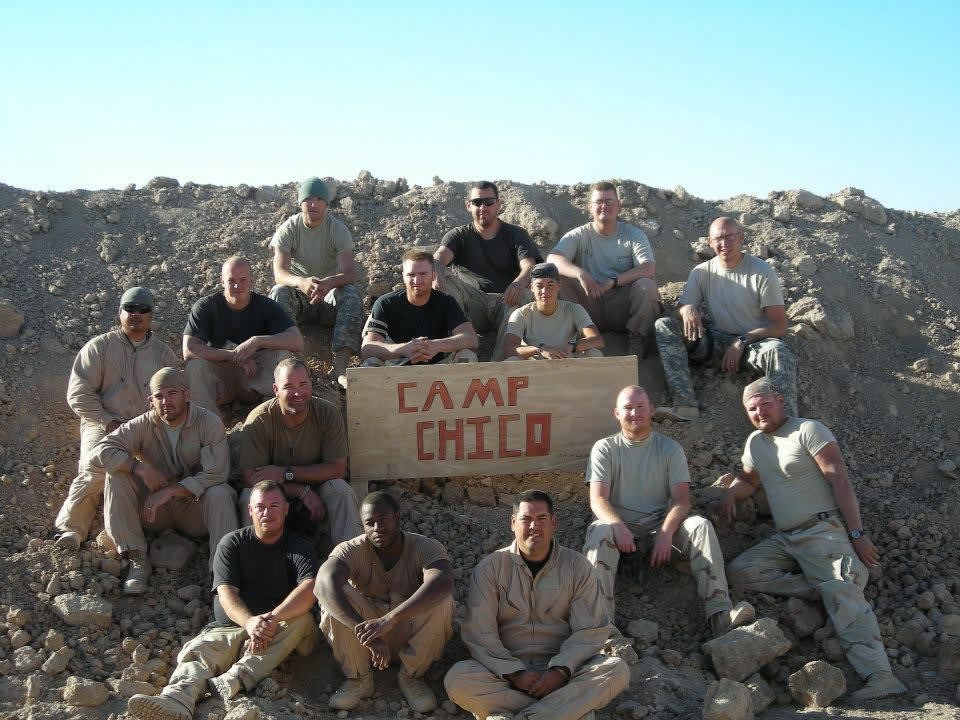
Macherie holding a sign of Camp Child
My experience of being queer in the military was entirely different. I wasn’t going to get kicked out of the military for being Black, but I would for being queer.
In 2004, just two years into my enlistment, I was investigated under Don’t Ask, Don’t Tell. I remember walking into our building and swinging by my favorite Senior Master Sergeant’s (E-8) office, when I noticed she was rapidly packing her things.
“Hey Senior, what’s going on?” I asked as I watched in shock and confusion. She paused and in return said, “I can’t look out for you anymore. You need to watch your back.” And she went back to packing.
The next thing I knew, I was being called into the First Sergeant’s office regularly, getting asked why I was at certain establishments or talking to certain women in public, even naming specific stores I visited at the mall. I knew I was being followed, and I was scared.
I avoided a dishonorable discharge by making up some excuse, in the form of an urgent family situation, to be separated from service and placed on Inactive Ready Reserve (IRR) duty status. I knew I still wanted to serve, so a few months later, I went to my recruiter and got back on active status, going to a different unit in a different location.
Upon returning to active service, I proudly served as an operator with RED HORSE, the Air Force’s combat engineers, for the remainder of my career. In 2007, I deployed to Iraq as the only woman in the Air Force who did my job. During my 2008 deployment, there were three of us.
Most of the guys I served with in RED HORSE didn’t care that I was queer. They cared that I wasn’t afraid to pick up a shovel and do the hard work. Their wives were relieved because it meant they didn’t have to worry about me trying to sleep with their husbands. It worked out really well.
I did experience some challenges while deployed, sexual harassment being the most insidious. Some of the guys made it very clear that they felt they could mess with me more and “jokingly” challenged my queerness in some rather perverse ways. They knew, just as well as I did, that there was nothing I could do to stop their behavior.
While on my second deployment, in 2008, one of my best guy friends helped with my cover by allowing people to think that we were dating. He even stood up to other men who were harassing me. I’m tough, but sometimes it was safer to have a man stand up to other men on my behalf. We’re still friends to this day, and I am truly grateful for him.
All Roads Lead to DC
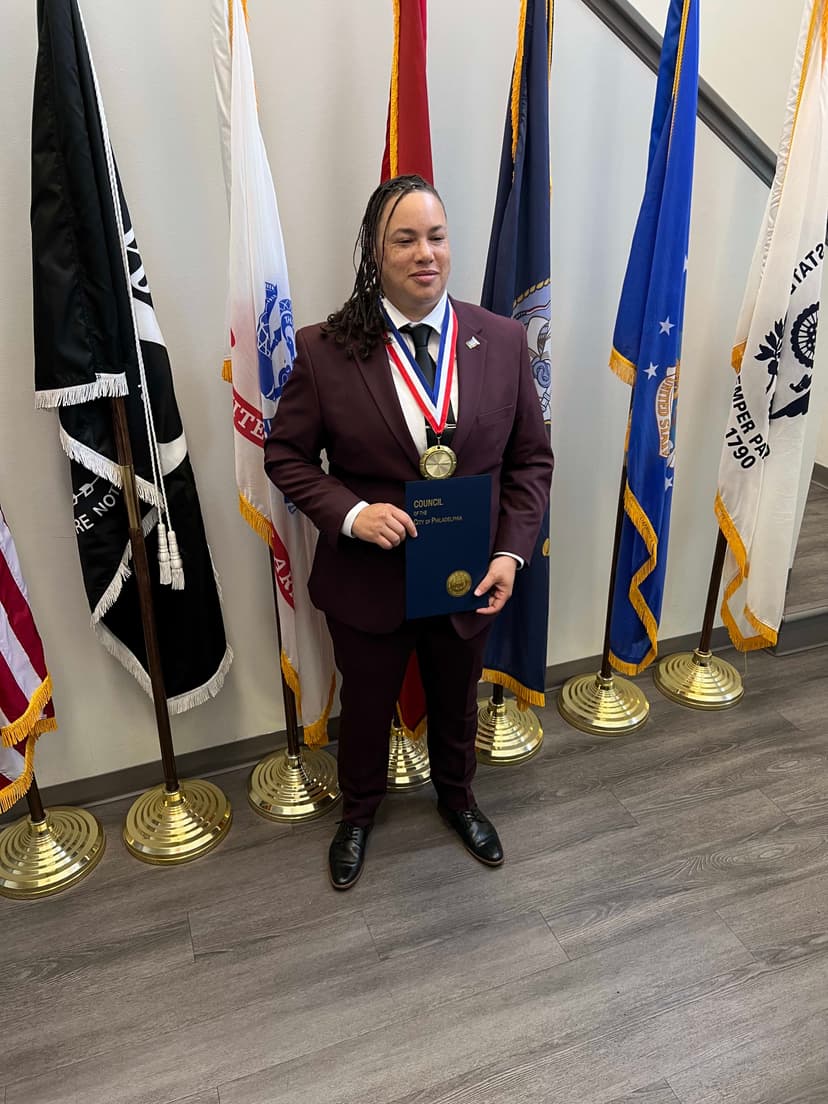
MaCherie is being recognized by the City of Philadelphia for her work in veteran advocacy
My transition from service was difficult. Due to deployment-related injuries, one from being within the immediate blast radius of an RPG attack, my military career was cut short.
Despite the challenges associated with my service, I was not awarded the VA rating warranted for my injuries outright, nor did I receive my Purple Heart. I remember the phone call. I was driving and trying to explain how my circumstances were unique, and the best evidence I had of the event was an award my unit gave me for rendering aid in the immediate aftermath.
During my first deployment, I was the only woman on the mobile pave team, and we’d just gotten to a new base. The guys were on one side and I was on the other, bunked with women in the Army. The RPG attack occurred at night, just as many of us were getting ready for bed. Years later, when asked, I couldn’t name anyone with me. Yet, the diagnosed TBI from the attack and subsequent PTSD are what led to my medical retirement
It took years to get the rating I was warranted, which is no new story. Historical precedent and a recent admission by the Department of Veterans Affairs make (and continue to make) clear that there is a significant and ongoing disparity in benefit allocation negatively affecting Black veterans compared to White veterans.
During this period, I became homeless. I was housebound, recovering from surgery, and I only had two months of savings. Then, a clerical error made by VA delayed increased compensation, which would’ve kicked in right as savings went out. Instead, I received a denial letter. Because my VA pay was $97 over the national poverty limit (in 2018), I was ineligible to receive supportive services.
It took several months, but I secured housing and got back on my feet. I knew that if this could happen to me, by this point a well-connected and well-known veteran advocate, it really could happen to anyone. I knew I needed to do more, so I dove into politics and deeper into advocacy.
Not long after, I was connected with a newly elected congresswoman and secured a role as a constituent advocate. My primary focus was the military and veteran community, although I did manage other portfolios.
I finally made the move to Washington, D.C., in October of 2021 to continue my work as an advocate for veterans and military families.
Encouraging Change
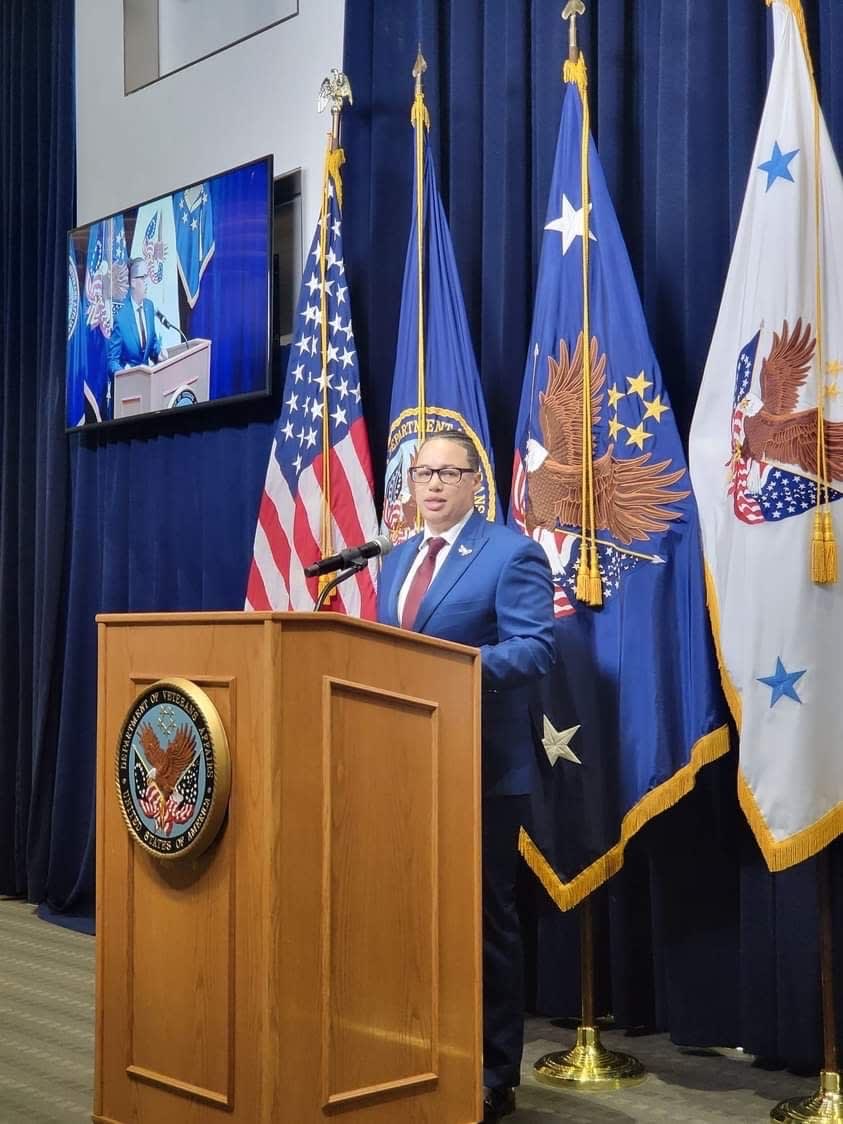
MaCherie speaking at the first LGBTQ+ town hall hosted by the U.S. Department of Veterans Affairs
I connected to queer advocates and veteran advocates quickly, and, because I am one of the people “doing the work,” it’s likely been a bit easier for me than others to find community with other Black queer veterans and Black queer advocates in general.
Unfortunately, at military or veteran-related events, I often found myself being the only one — or one of a very few — at the intersection of Black and queer. And I can’t tell you how many queer and queer veteran events I’ve attended where I’ve been the only Black person.
Because leaders within veteran and queer nonprofits tend to be overwhelmingly White, often male, and mostly straight, there is an inherent lack of understanding and the constant need to explain and justify the needs of the Black and/or Black queer community. One thing rings true: If I’m the only Black person or queer person in a room, whether it’s a military, veteran, or other space, the formula is wrong.
If the District could do anything better, it would be to host events aimed specifically toward Black veterans, with an intention to draw in the younger demographic. It has to be more than your typical Black History Month ceremony or some special acknowledgment. If the events tend to be overwhelmingly Caucasian, do something different so that maybe, sometimes, they’re overwhelmingly Black. This is Chocolate City, after all.
Looking Back Without Regrets
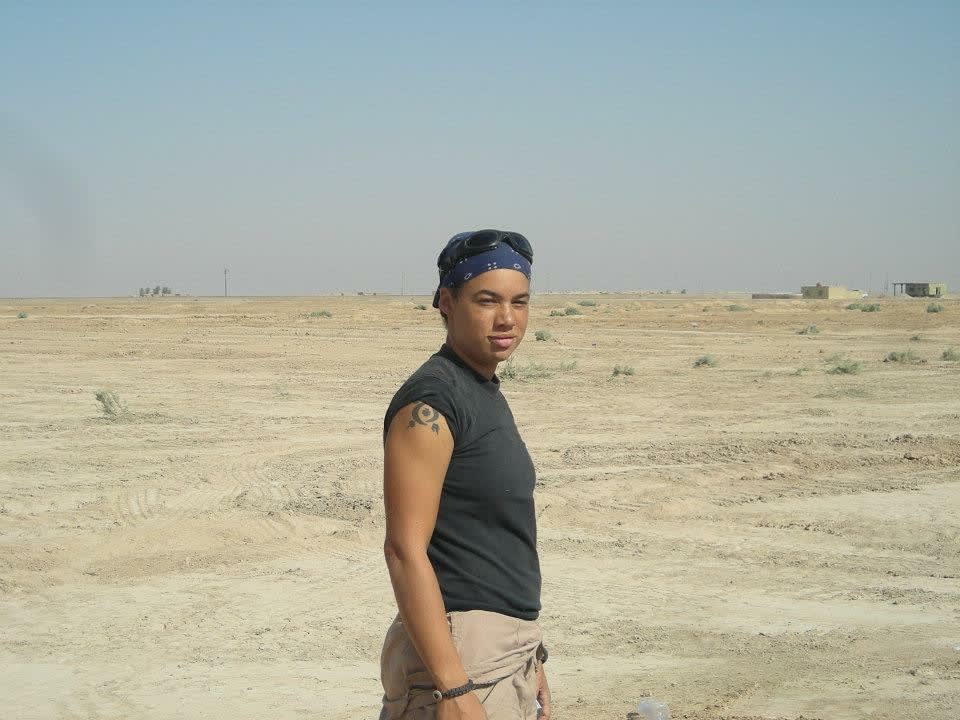
Photo Courtesy of MaCherie Dunbar
If asked whether I would do it all over again, I think I would. I looked at the life I was living and wanted better for myself. The military, at the time, seemed like the only way to do better.
My uncle once told me that he wished he would’ve tried harder to talk me out of joining. I understand his perspective, because the benefits come at a cost. Some escape unscathed, but there are those who paid with their lives, and there are those whose lives will never be the same. My risk came with “reward,” but you can absolutely believe I’ve paid my price.
It’s been my life’s work since then to ensure others don’t have to walk in my footsteps. Getting access to benefits and resources shouldn’t be as hard as it is — for anyone. If you served, you should be taken care of, regardless of what you look like or how you identify.
Looking Forward
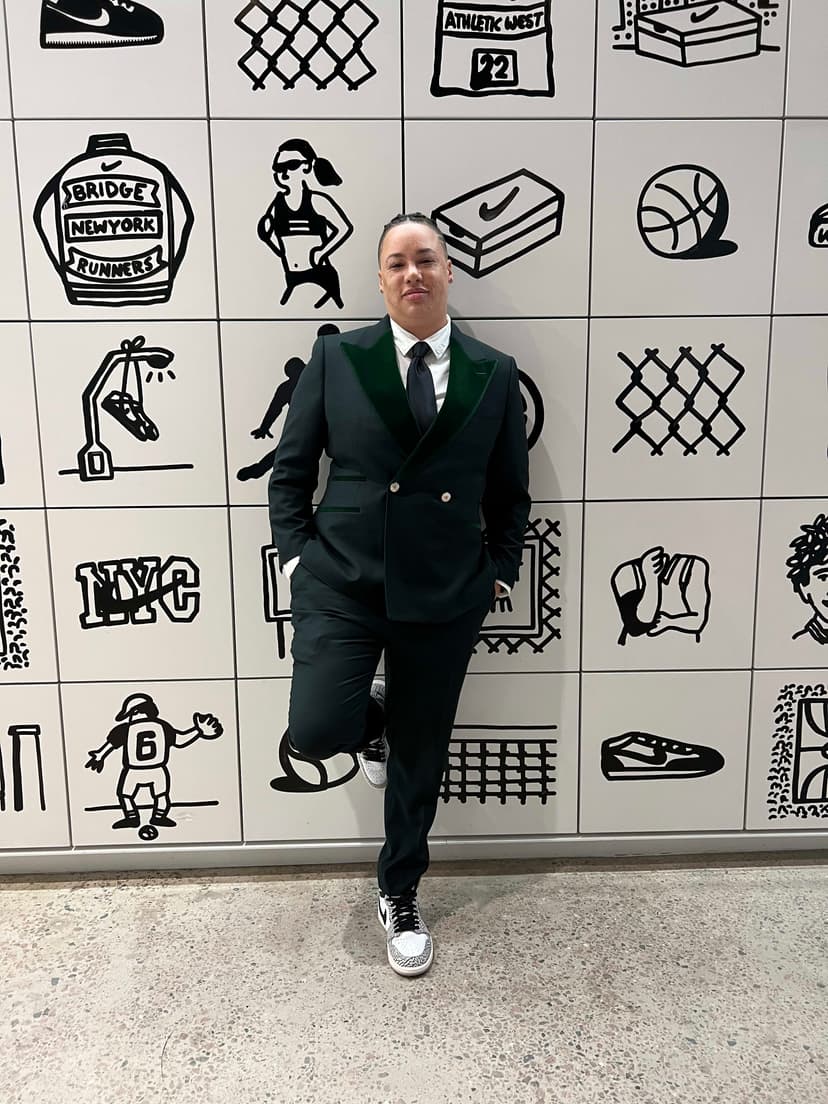
MaCherie is attending the Black Veterans Project gala in New York City
When young people ask me if they should serve, I urge them to really consider if the military is the safest place to be, particularly right now. Especially, and maybe specifically, if they belong to any “minority” demographic. I encourage them to understand their way and explore various ways to get there. The military is an excellent path for upward mobility, but it isn’t the only one. I also always encourage them to look into ROTC or other pathways to becoming an officer.
As others have said within these pages, find your community and know where you can find safe spaces. There may be more local resources than federal, so tap in — and remember that you are never alone.
This personal story was written by MaCherie Dunbar, special issue co-editor and guest contributor, an award-winning advocate, and Black queer veteran residing in Washington, D.C.













